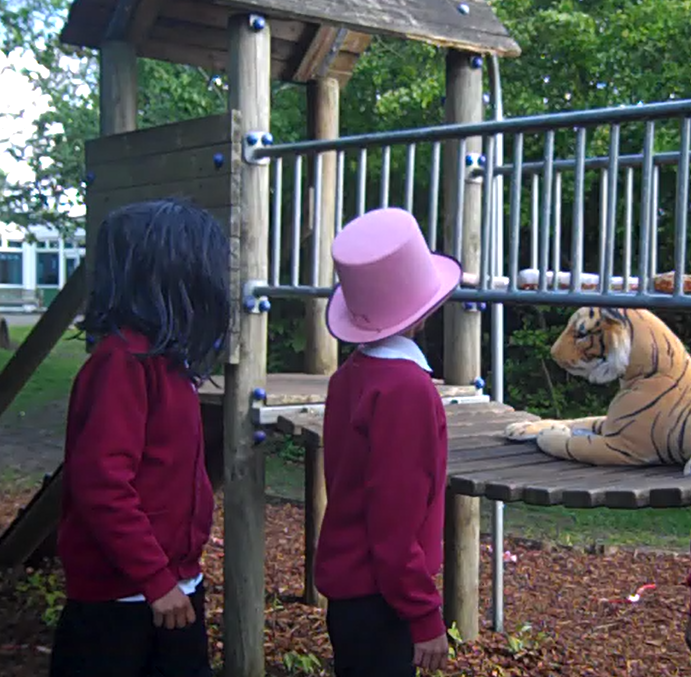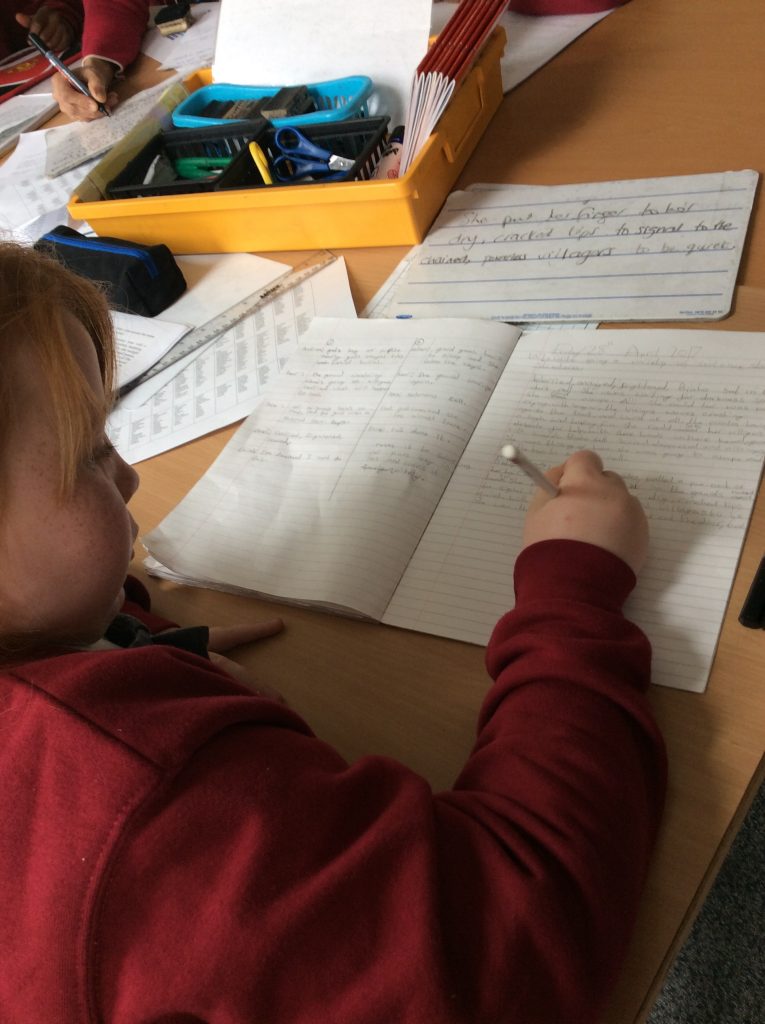“A change has come over the classroom!” – digital literacy in KS2
When primary school teacher Joy Groom first considered filmmaking projects for the classroom, she recognised that a digital end-goal could act as a real motivator for her pupils to write. What she hadn’t anticipated was that this focus would also build their appreciation for the writing process itself and provide the perfect platform on which to celebrate their efforts. Here she describes the experience:
“The aspiration of all teachers, everywhere: How to engage disenchanted, disinterested children in an entertaining, stimulating topic, whilst ensuring that the ever-present specter of attainment, progress and accountability is satiated.
In this era of increasing broadband speeds, instant gratification and information at their fingertips, children are less willing to refine their work, to make it better, to make it sing – once written, for them, it’s done.
Why not then take advantage of this fast-paced, entertainment-hungry societal slant. After all, children will sit captivated by a short film on seahorse births in science or volcanic eruptions in geography; why not use what they are interested in, to engage with literacy? Why not take a digital approach to learning?
 My children always bemoan the art of writing:
My children always bemoan the art of writing:
“Why should I change that adjective to a better one?”
“You always say that we write to communicate – surely this can be understood as it is.”
“Is it enough now?”
It is difficult to inspire a passion for writing when everything children access is so fast-paced. Filmmaking seemed like the perfect medium – a sort of carrot and stick approach. At least, that’s what my initial thoughts were…
A change has come over the classroom. Sighs, grunts and bowed heads have been replaced by boundless enthusiasm – you know – the way children should be.
“Letter writing you say – great!”
“What’s that? We’re doing an extra half an hour to finish editing our character introductions – no problem.”
These are not unusual cries from my class. I’ve even had children pleading to stay in and work during lunch. Cue the double-take. Using digital literacy through ATU’s projects became not just the carrot (you finish this to a good standard and we can film it on Friday) but a way in which the children could celebrate their achievements.
The children work much harder on refining their sentences. They now appreciate that a word change in a sentence can make the world of difference. They grab for the thesaurus (still working on sharing!) and devour new vocabulary. Without realising, they have become masters of the written word – well, almost.
When listing the different text types they had drafted, edited and re-written – they were amazed. Each child could wax lyrical on the features of a script or the need for longer descriptive sentences when writing about a character as opposed to shorter, sharper sentences for tension. The downside is that they have also become experts at picking apart my writing models – I now have to raise my game.
Writing levels are much improved – naturally. The children are eager and engaged and, as a result, they want to include the relative clause, the choicest adverb and the words ‘rhinotillexomania, (disgusting habit) or ‘pneumonoultramicroscopicsilicovolcanoconiosis’ (volcano topic). We’ve used up countless green editing pens. But more than that, the children are able to deliver a line with aplomb; the quieter children in the classroom are donning wigs and immersing themselves in their characters and all are becoming much more able to work collaboratively – understanding the art of persuasion and developing their listening skills. Initially, I was concerned about the children with ADHD and Autism and how they would cope with a less structured environment and, although not always plain sailing, they are beginning to flourish.
All are immensely proud of their work, as am I. They are able to appreciate how far they have come and how their hard work is paying off. We are now looking forward to celebrating their efforts during our Oscar evening, with parents, glitz and glamour, to boot.
Find out more about the literacy and filmmaking projects Joy completed with her class by visiting www.litfilmfest.com, where you can explore a range of projects for free!










